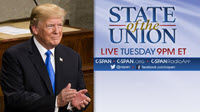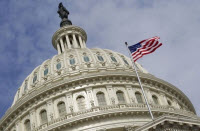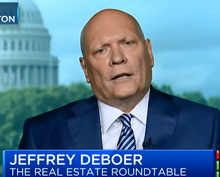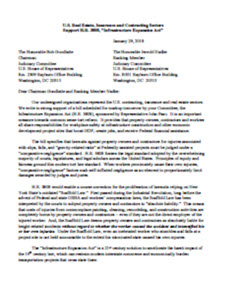
A proposal to improve the nation’s infrastructure and surface transportation will be unveiled by House Democratic leaders next week – as the House Ways and Means Committee considers how to pay for it during a Jan. 29 hearing on “Paving the Way for Funding and Financing Infrastructure Investments.” (Deloitte Tax News & Views, Jan. 17)
- Ways and Means Committee (W&M) Chairman Richard Neal (D-MA) and Transportation and Infrastructure Committee (T&I) Chairman Peter DeFazio (D-OR) will be tasked with considering how to offset the costs of a national infrastructure improvement effort and surface transportation bill. (BGov, Jan. 23)
- The Ways and Means Committee hearing will explore potential funding options, including raising the gasoline tax; expanding tax-exempt bonds; establishing a vehicle-miles traveled tax; and greater use of public-private partnerships (PPPs). The Congressional Budget Office reported this week that PPPs have accounted for only 1 to 3 percent of spending for highway, transit, and water infrastructure since 1990.
- The Roundtable submitted extensive comments on infrastructure policy to both committees last year. (March 20, 2019 W&M comments; April 29, 2019 T&I comments.)
- The nation’s largest financing source for roads, bridges, tunnels, and mass transit – the federal Highway Trust Fund (HTF) – expires on Sept. 30, the end of the government’s 2020 fiscal year.
- With HTF reauthorization considered a “must do” legislative priority during this election year, a transportation funding bill will likely become part of the broader infrastructure proposal, which could total $1 trillion or more.
- The Roundtable and more than 150 national trade associations also wrote to Senate Majority Leader Mitch McConnell (R-KY) and Senate Minority Leader Chuck Schumer (D-NY), on Sept. 30 to reauthorize the HTF before its scheduled expiration. (Roundtable Weekly, Oct. 4) Chairman DeFazio said his possible funding sources could incorporate federal gas tax revenues and a bonding proposal. (BGov, Jan. 17)
- In the Senate, four committees will play a role in crafting a long-term HTF package. Last summer, the Senate Environment and Public Works (EPW) Committee unanimously advanced a bill (S. 2302) that would authorize $287 billion over five years to repair and maintain the nation’s surface transportation. (EPW Committee news release, July 30)
- Senate Majority Leader Mitch McConnell (R-KY) recently discussed with GOP committee leaders possible transportation and infrastructure agendas that could be advanced after the impeachment trial ends.
- Additionally, the Trump Administration on Jan. 9 proposed changes to federal environmental review requirements to speed major infrastructure projects such as highways, airports, tunnels and pipelines. (Roundtable Weekly, Jan. 10)
- The proposal by the White House’s Council on Environmental Quality (CEQ) to streamline the infrastructure approval process complements the similar, bipartisan efforts in the Senate to speed-up delivery for infrastructure projects. (Roundtable Weekly, Aug. 2)
Federal infrastructure efforts, and their vital importance to commercial real estate, are a focus of The Roundtable’s 2020 Policy Agenda, which will be discussed at the organization’s State of the Industry Meeting on January 28-29 in Washington.
# # #












